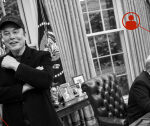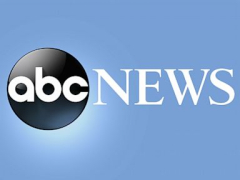Omnicom CEO John Wren and IPG’s Philippe Krakowsky haven’t exactly been shy about their stance on the proposed deal between both groups since it was unveiled last December.
So when the two met with ad consultants for two hours earlier this week (Feb. 19) in New York, the room knew this was their shot at getting some long-awaited clarity on the flurry of questions, concerns and hot takes sparked by Omnicom’s potential acquisition of IPG.
“They [Wren and Krakowsky] see us as representatives of advertisers so the meeting was very much about giving us the floor to raise the many questions and concerns they have,’ said one exec, who exchanged anonymity for candor on what went down.
Did they walk away with all the answers? Hardly — regulators haven’t even stamped their approval yet, which means plenty remains off limits. But they did leave with a clearer picture of what remains unknown — about as much as they could expect for now. After all, as the go-betweens for the clients keeping Omnicom and IPG in business, these consultants exist to navigate — and capitalize — on moments like this.
And it’s not like high-stakes deals come around often. If the deal gets the green light, the ripple effects will reshape the competitive landscape, rattle pricing dynamics and put agency-client relationships under strain. CMOs need to stay ahead of these shifts, no matter where they stand on the deal.
“Most of my clients — past, current and future of both groups — are all asking questions about the deal but they’re still at the early stages of curiosity,” said another consultant who was in the meeting.
But chances are, that curiosity won’t be fully satisfied anytime soon — not until regulators weigh in. For now, CMOs will have to make do with the morsels of insight they’ve gathered so far, most of which came from that meeting.
One clear takeaway: marketers anxious about losing their favorite agency rep can breathe a little easier. Wren and Krakowsky assured them that job cuts would mainly affect back-office roles, not client-facing teams — less about slashing costs, more about fueling growth and future M&A.
That long-term view came through elsewhere in the discussion too. Wren told someone in the room that more deals would be inevitable given how much the market will shift between the deal’s announcement and full integration, according to an ad exec who was there.
It’s why the few comments the CEOs did make about how the mega-agency group would function raised some eyebrows. The plan? Keep all the agency brands — the ones not already on the chopping block, that is — and give marketers access to the full portfolio. In other words, they won’t be following the lead of rivals who are consolidating brands left and right.
How they plan to operationalize that strategy is still a mystery, but for some consultants in the room, it was enough to trigger a deeper realization: the holding company era of agency groups is fading — and the era of the operating company is beginning.
“They’re really going to operate this new organization as one, big company like Accenture or IBM as opposed to running a bunch of companies separately,” said Matt Ryanm, founder of advertising consulting firm Roth Ryan Hayes. “We’re in the advent of the operating company.”
With little clarity on what that shift actually means in practice, CMOs will have to settle for one assurance: whatever savings, talent and services they’ve secured with either group so far will carry over to the new company — at least for now. Na





